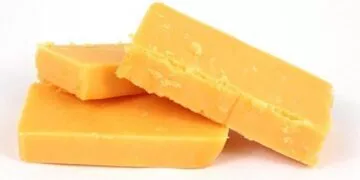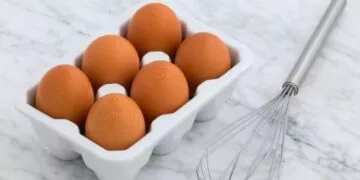Parmesan cheese is one of those cheeses that’s reached legendary status in the culinary world, and that’s not without good reason!
It’s possibly one of the most divine hard cheeses out there, and a little bit can go such a long way in making food delicious.
We hope you’re ready to read up on all things cheesy, as we’ve assembled a smorgasbord of tasty Parmesan facts for you!
There’s a massive difference between Parmesan and Parmigiano Reggiano.
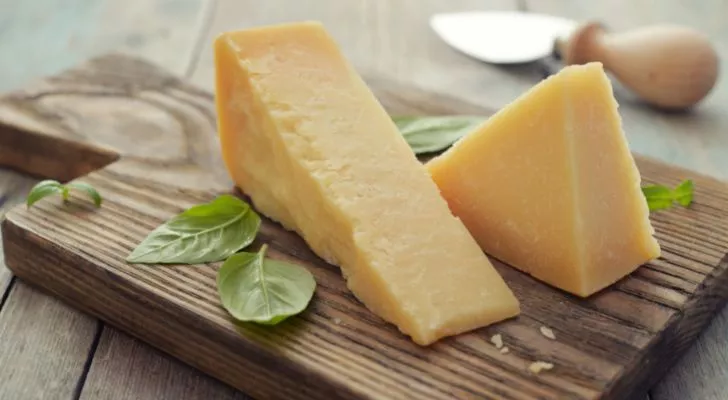
All Parmigiano Reggiano cheeses are Parmesan cheeses, but not vice versa.
If cheese is called Parmigiano Reggiano, it must come from the Italian regions of Parma, Modena, Mantua, or Bologna.
On the other hand, Parmesan is simply any granulated cheese of the same style as Parmigiano Reggiano.
Confusingly, it’s also the English word we use to refer to the regional specialty and the type of cheese as a whole.
The EU protects both Parmesan cheese and Parmigiano Reggiano.
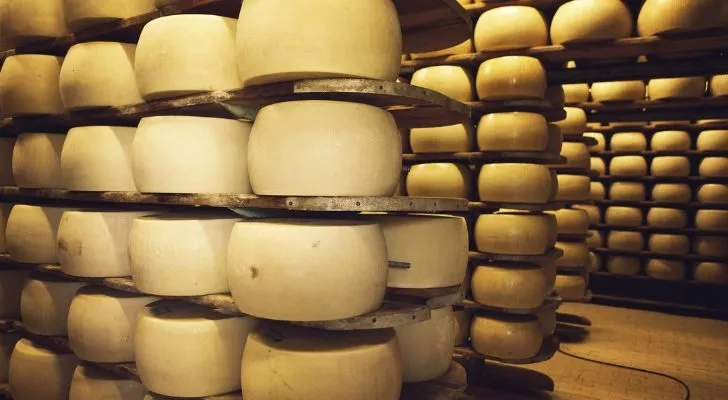
European Union regulations don’t just protect the name Parmigiano Reggiano but also the name Parmesan.
That means that not only do Parmigiano Reggiano cheeses have to come from the aforementioned specific regions in Italy, but you can’t just go calling any cheese Parmesan either.
There’s little the EU can do to regulate Parmesan made elsewhere.
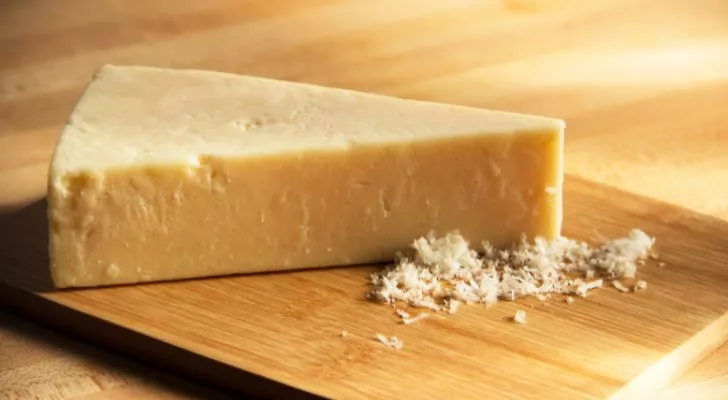
There’s really not a lot that stops people from making cheese elsewhere in the world and calling it Parmesan.
The avid cheese aficionado can easily discern the difference, but it can sometimes confuse regular folks.
For example, the so-called “imitation” Parmesan made in the US is often only aged for ten months.
The processes used to create the cheese and even how the cows that produce the milk are fed are usually entirely different.
Real Parmigiano Reggiano cheese also has to be made in a certain way.
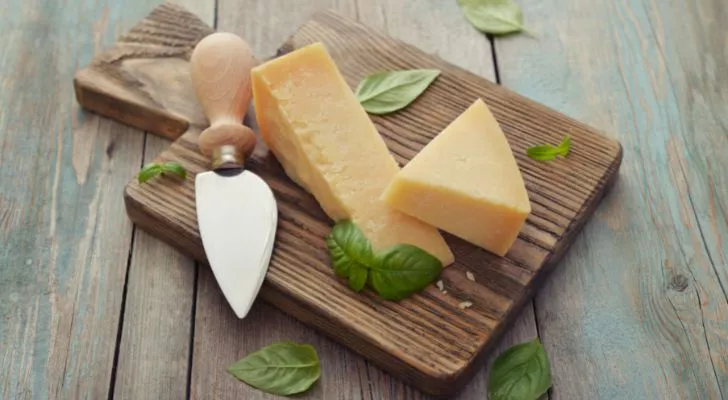
As we’ve mentioned, it must be created in specific regions of Italy. On top of this, the cows that produce the milk must only eat locally grown feed.
After the cheese is molded, it is branded with a sequential code so its origins can be traced.
Finally, it must be aged for an absolute minimum of twelve months.
Parmesan can be aged for as many as 90 months or more!
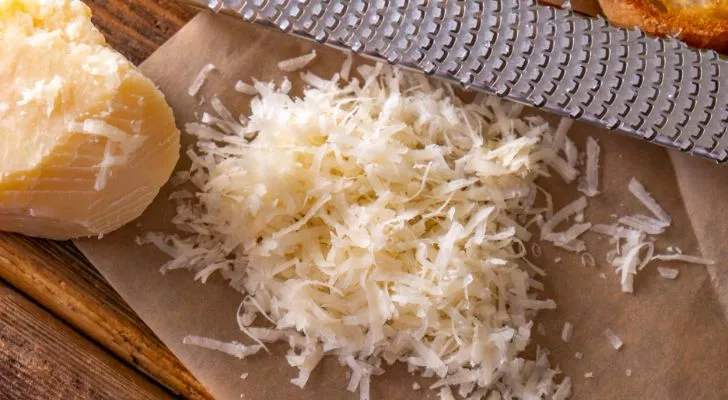
While there’s a strict limit on the minimum aging period, there’s no set limit on the maximum period.
Twelve-month-old Parmesan is softer, creamier, and perfect for snacking on.
By 24 months, it becomes much more grainy and is excellent for grating on pasta, and by 36 months, it has a dry and crumbly texture with an intense flavor.
Parmesan cheese has been made for at least seven hundred years.
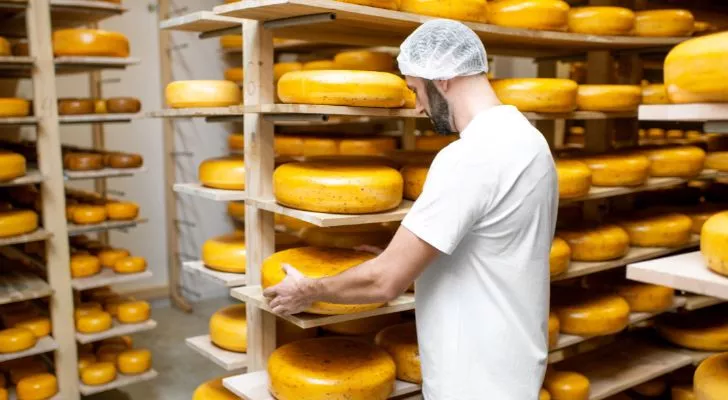
Legend states that Parmigiano Reggiano was first created in Reggio-Emilia, a province of Italy’s Emilia-Romagna region.
The first historical documents which describe it date back to the 13th century and describe a cheese pretty close to what we love to eat today.
A wide variety of Parmesan cheeses were all popular at this time, so it’s pretty likely that, although undocumented, Italians have been enjoying Parmesan for a lot longer than this!
It’s surprisingly nutritious!
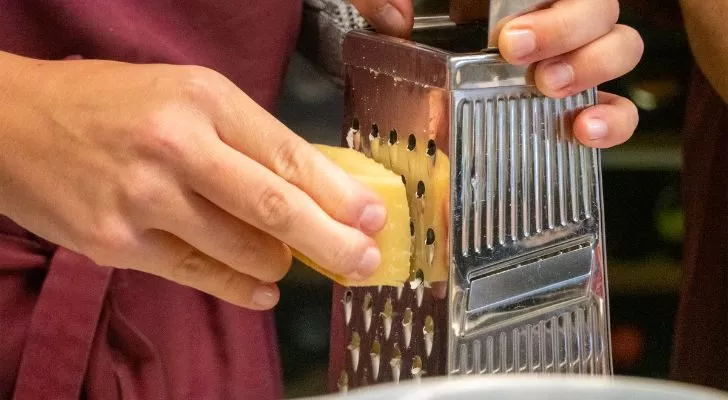
Believe it or not, Parmesan cheese is actually good for you. Just 30 grams of it gives you 50% of your daily calcium intake, for example.
It’s also high in vitamin A, vitamin D, iron, potassium, Thiamine, and Riboflavin.
Parmesan cheese crusts can be used to make heavenly stock.
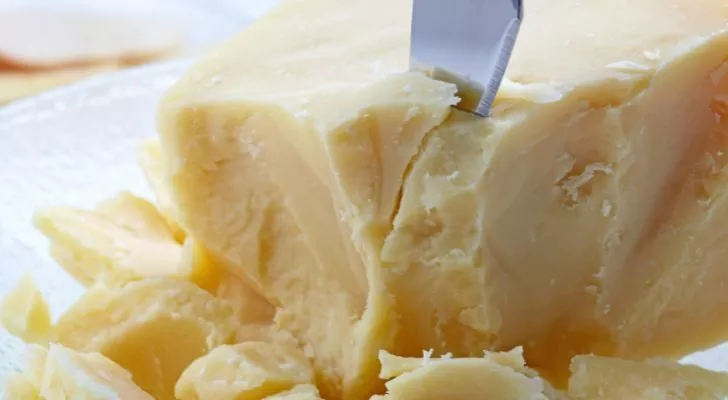
Whatever you do, don’t go throwing out the hard crusts from your Parmesan cheese blocks!
Toss a few rinds into a pot of stock you’re making or into a soup or stew, giving it an incredible new depth of flavor.
You can also simmer the rinds and snack on them after they soften, or infuse them in olive oil!
You can eat Parmesan if you’re lactose intolerant.

Don’t try this with anything other than real-deal Parmigiano Reggiano unless your cheese monger tells you otherwise.
In “real” Parmesan, all the lactose is converted into lactic acid in the first 48 hours of the cheesemaking process.
Any Parmigiano Reggiano, aged twelve months or longer, is perfectly fine to eat if you can’t handle lactose!
Parmesan cheese comes in three grades.
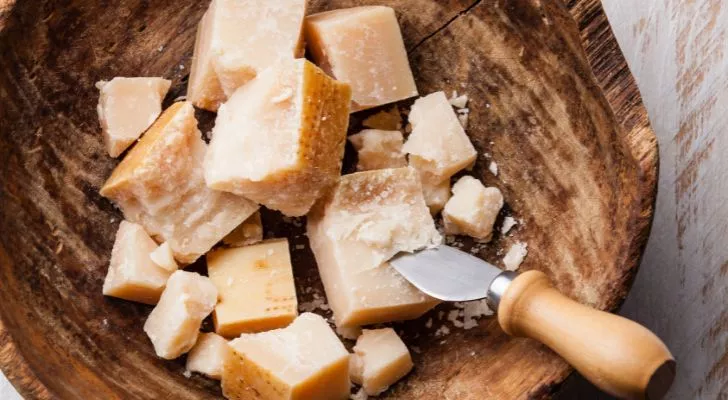
Wheels of Parmigiano Reggiano cheese are graded after they complete their set period of maturation.
A first-grade wheel is entirely free of physical defects and complies with all the specified requirements for Parmigiano Reggiano.
Medium-grade wheels are exactly the same as first-grade cheeses in taste but may have some form of physical defect in their rind or structure.
If a wheel of Parmigiano Reggiano has too many flaws, the rind and all markings are removed.
The wheel is sold simply as a hard Italian Parmesan-style cheese without its former name.
We really can’t blame Italy for wanting to protect Parmesan cheese.
Suppose you taste real Italian Parmigiano Reggiano side-by-side with an imitation Parmesan. In that case, you can quickly tell the difference, and you might find yourself throwing the latter in the bin.
A tiny grating of real Parmesan on top of a simple plate of pasta brings it to an entirely new level, while not even a mountain of imitation Parmesan would do the same.



